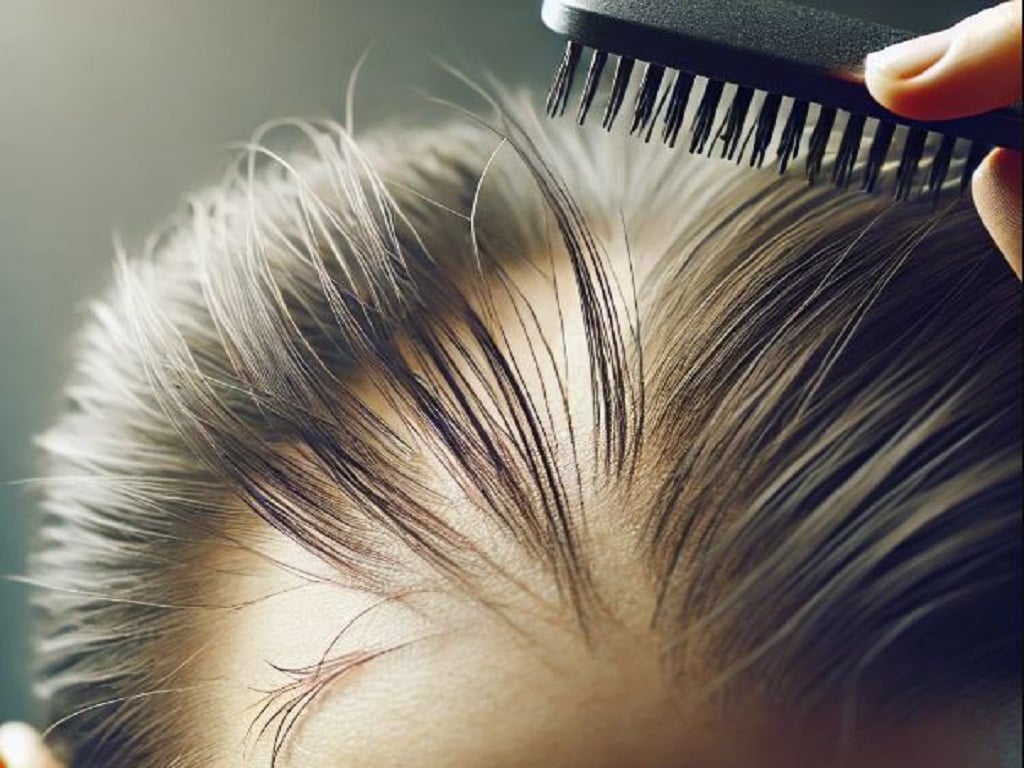Stress is one of the most common causes of hair loss, affecting both men and women. Therefore, controlling stress is an important factor in maintaining healthy hair.
Stress can have a major impact on your physical and mental health. In addition to causing insomnia and anxiety, stress can also cause hair loss, according to the US health website Healthline .

Excessive stress can cause hair loss.
Stress causes hair loss through the following mechanisms:
Interruption of hair growth cycle
When the body experiences prolonged stress, the nervous and hormonal systems become disrupted, increasing levels of the stress hormone cortisol. This can disrupt the hair growth cycle, disable the stem cells that help hair grow, and cause more hair to fall out than normal. If the body already has underlying problems that cause hair loss, stress will make the effects of these problems worse.
TE hair loss
Telogen effluvium is a type of temporary hair loss caused by excessive stress or abnormal changes in the body. Normally, hair will go through 3 stages: growing, resting and shedding. The shedding stage is also called the telogen phase.
TE affects hair when it is in the shedding phase. Specifically, stress causes about 70% of hair in the resting phase to transition to the shedding phase.
Trichotillomania
Some people also have the habit of pulling out their hair when stressed, causing their hair to thin out. This condition is also known as trichotillomania, an impulse control disorder that causes people to have an irresistible urge to pull out their hair, even though they know it is harmful.
People with trichotillomania often pull out hair from their scalp, eyebrows, eyelashes, or other areas of their body, leading to thinning hair or even bald patches. Mental health experts say this unusual behavior is often a coping mechanism for stress or anxiety.
The cause of trichotillomania is not clearly determined but may be related to genetic factors, neurochemical imbalances, or psychological disorders such as anxiety and obsessive-compulsive disorder. (OCD).
To reduce stress, experts recommend that people with the condition can apply measures such as practicing mindfulness, deep breathing exercises, exercise or cognitive behavioral therapy (CBT), according to Healthline .
Source: https://thanhnien.vn/vi-sao-cang-thang-lai-gay-rung-toc-1852503071835356.htm



![[Photo] Phuc Tho mulberry season – Sweet fruit from green agriculture](https://vstatic.vietnam.vn/vietnam/resource/IMAGE/2025/4/10/1710a51d63c84a5a92de1b9b4caaf3e5)
![[Photo] Prime Minister Pham Minh Chinh chairs meeting to discuss tax solutions for Vietnam's import and export goods](https://vstatic.vietnam.vn/vietnam/resource/IMAGE/2025/4/10/19b9ed81ca2940b79fb8a0b9ccef539a)


![[Photo] Unique folk games at Chuong Village Festival](https://vstatic.vietnam.vn/vietnam/resource/IMAGE/2025/4/10/cff805a06fdd443b9474c017f98075a4)

























































































Comment (0)